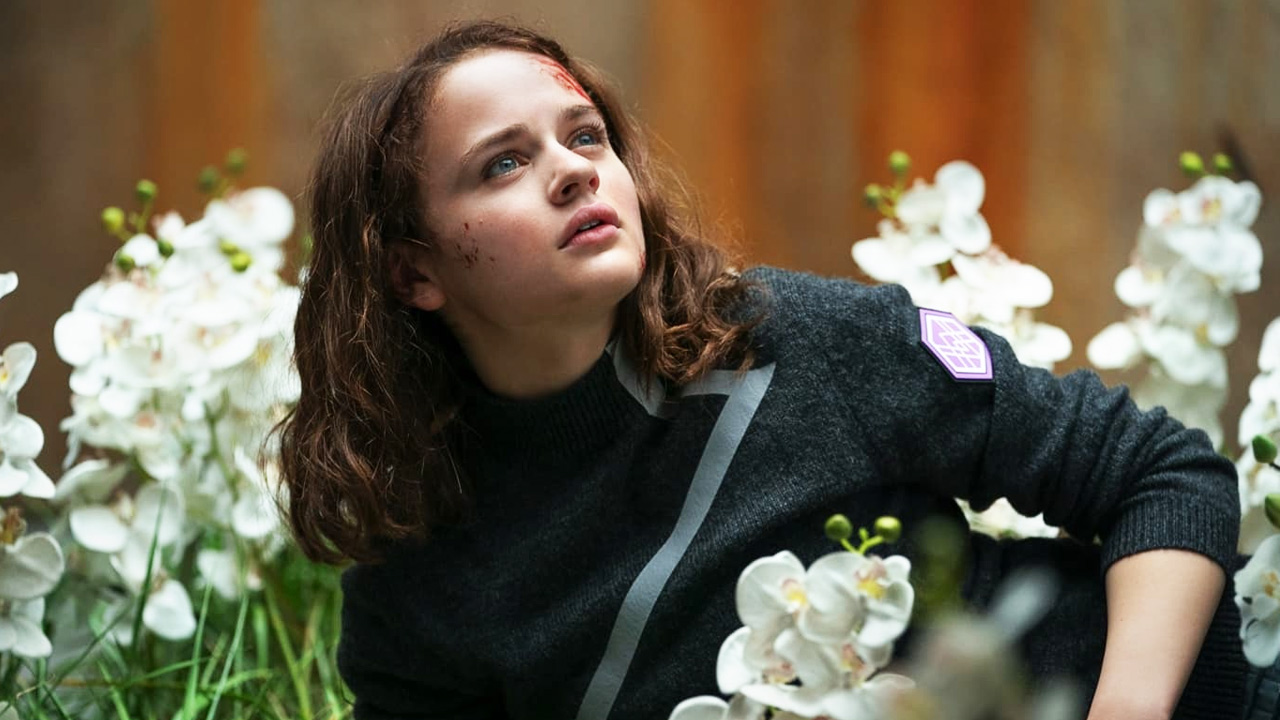Uglies is a strange and stodgy dystopian action movie

Joey King brings some grit to the lead role in Uglies, but this adaptation of a best-selling YA novel is drably staged and unconvincing, writes Luke Buckmaster.
In Andrew Niccol’s great sci-fi movie Gattaca, the term “in-valids” describes citizens born without genetic enhancements, who are discriminated against and form a new social subclass. The equivalent term in McG’s not-so-great dystopian film is “uglies,” referring to people who are yet to be cosmetically enhanced—transformed from their smelly old selves into smoking hotties. The people in this world have no time for that old “beauty is in the eye of the beholder” palaver: beauty is skin deep; beauty is conformity; beauty is looking like an embodied Snapchat filter.
To follow the logic of this strange and messy film, adapted from Scott Westerfeld’s best-selling YA novel, it’s necessary to put some context around this premise, even if doing so results in more questions. Uglies opens with a slab of contextualising voice-over from the protagonist, Joey King’s Tally, who explains that humanity’s reliance on fossil fuels led to the climate crisis, which led to earth being decimated, which led to chaos and war. A revolutionary new power source was invented, which is pretty nifty, but social problems persisted because those know-it-all scientists “didn’t solve the world’s biggest problem: human nature.”
So the powers that be came up with a radical solution called “the transformation,” whereby everybody on their 16th birthday undergoes an operation to become their most physically attractive self, and are relocated from ugly gray compounds into twinkling neon buildings. Tally can’t wait, but learns the real cool kids are a bunch of beatnik rebels outside the city who grow their own food, read books, gather around campfires and happily age the natural way. They don’t literally hold hands and sing “kum ba yah” but that’s the vibe.
Tally is recruited by an evil governor, Laverne Cox’s Dr. Cable, to infiltrate their colony, called “The Smoke,” and put an end to those pesky jungle people once and for all; Cable is the Captain Hook to the rebels’ Lost Boys. Is it possible that Tally will be impressed by their nature-respecting lifestyle, like Avatar’s Jake Sully, and perhaps also learn some shocking truths about what Cable’s government is really up to, like Soylent Green’s Robert Thorn? Why yes, yes it is. Evoking the concept of enforced beauty standards is a strange way to lead into these familiar narrative pivots, though any novelty is worn away by stodgy writing and the film’s cut-rate look and feel.
Tally’s inevitable foray into heroism feels unearned; she’s moved through plot scenarios like a chess piece. You don’t feel for her or root for her—at least I didn’t. While I appreciate The Smoke’s off the grid, old school ways, that bright city with swirling lights, futuristic cocktails and holographic projections looked pretty good too, so, hmm, where would I choose to live? The fact that I wouldn’t mind spending time in the dystopia, rather than the supposed utopia, speaks to how greatly Uglies fails to convince us of even its most essential underlying concepts.

King’s performance brings a measure of understated grit, the actor doing a commendable job getting her mouth around lackluster dialogue (like “I’m strong,” “I know who I am now” and “I’m going to make this right”) that tends to get worse as the stakes increase. Cox meanwhile is eerily empty-eyed as the chief villain, and not in a good way: she seems less a person than a computer program or virtual projection.
Early in the runtime, in fact, we see her as a giant-sized hologram displayed in front of a large audience of teenagers. I enjoy small details like that in sci-fi movies, depicting plausible future technologies and making you wonder “will that actually happen?” In Uglies there’s also a “toothbrush pill,” and some scenes that’ll make you wish for real-life hoverboards (cammon, it’s time already). But that’s only flecks of interest here and there; the film is drably staged and the drama dithers.
















